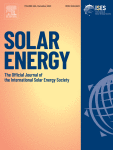This study presents the outcome of a utility-run rooftop photovoltaic (PV) power plant with battery energy storage systems (BESS) as a viable solution for enhanced energy storage and grid resiliency at the distribution network level. A comprehensive techno-commercial analysis of PV plants with BESS for commercial and industrial (C&I) consumers of a distribution company (DISCOM) is presented. The analysis is based on consumer data from eight different sectors in India. The impact of voltage rise, thermal loading and reverse flow are analysed for different PV + BESS grid network integration scenarios, which are found to be factored in the individual capacity and number of distributed systems connected to the grid, length and current carrying capacity of the feeder, running load and the location of PV + BESS integration. The cost-benefit analysis results show that the maximum economic benefit from PV + BESS can be attained by managing peak load, reducing diesel generator use, and increasing solar fraction in the energy system. The normalised net benefit is higher when PV + BESS is installed with load profiles, which coincides with the DISCOM load profiles. Results show BESS needs to be an essential element of a PV plant for reliability, flexibility, and grid stability.
